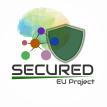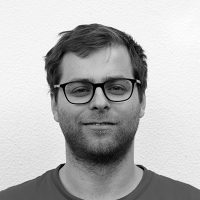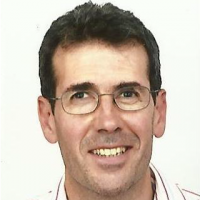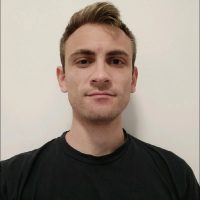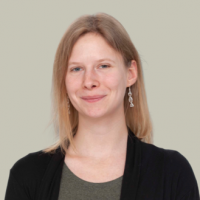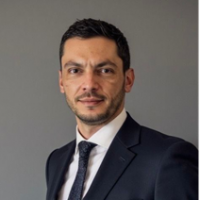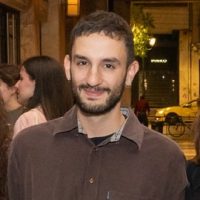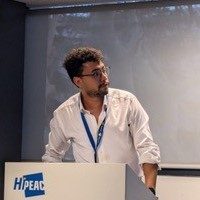2nd SECURED Webinar
Enabling Trustworthy Health Data Processing
through the SECURED InnoHUB
Second SECURED Webinar:
Enabling Trustworthy Health Data Processing
through the SECURED InnoHUB
November 18th, 10:00 – 13:00 CET
The SECURED project invites you to its second public webinar, where partners will present the technologies, tools, and services that make up the SECURED InnoHUB: a secure and collaborative environment for privacy-preserving processing and sharing of health data.
This webinar will take a deeper look at how SECURED’s technologies and services can support secure research and innovation in healthcare data. Participants will gain a practical understanding of different privacy-preserving approaches, see live examples from real use cases, and learn how to access and use the InnoHUB platform.
What to expect:
An introduction to SECURED and the ethical challenges of health data sharing.
An accessible overview of Federated Learning, Homomorphic Encryption, Anonymization, and Synthetic Data Generation techniques.
A walkthrough of the InnoHUB platform, and how to access its tools, services and libraries.
- Demonstrations of four pilot use cases, showing how SECURED tools are applied in real medical and research contexts:
- Data Privacy in Ultrasound-Assisted Neurosurgery
- AI-powered Telemonitoring for Pediatric Patients
- Synthetic Data Generation for Medical Education
Genomics and Electronic Health Records
Presentations of InnoHUB’s additional tools and services, including Legal/GDPR Compliance Check, Anonymization Decision Support, and Bias Assessment tool.
Live Q&A and discussion with consortium experts.
Who should attend:
The webinar will bring together healthcare professionals, data managers, policymakers, and researchers interested in privacy-preserving analytics and secure data collaboration.
📅 Date: November 18th 2025, 10:00 – 13:00 CET
💻 Format: Online
🕙 Duration: 3 hours
You can download the webinar’s agenda below:
📄 Download the agenda (PDF)
For more information about the SECURED InnoHUB and its tools, visit: https://innohub.catalink.eu
Time |
Session |
Speakers |
| 10:00 – 10:05 | Welcome | Gerasimos Artelaris |
| 10:05 – 10:15 | Why SECURED? The challenge of using health data responsibly | Francesco Regazzoni |
| 10:15 – 10:40 | Understanding Privacy-Preserving Techniques: Federated Learning, Homomorphic Encryption, Anonymization, Synthetic Data Generation | Balázs Pejó, Gareth T. Davies, Juan Carlos Pérez Baún, Alberto Gutiérrez Torre |
| 10:40 – 10:50 | The SECURED ecosystem and the InnoHUB platform | Christos Avgerinos |
| 10:50 – 11:00 | Q&A – Understanding the concepts | |
| 11:00 – 11:05 | Short break | |
| 11:05 – 11:25 | Use Case 1: Data Privacy in Ultrasound-Assisted Neurosurgery | Christos Strydis |
| 11:25 – 11:45 | Use Case 2: AI-powered telemonitoring for pediatric patients | Adrian Muñoz Felder |
| 11:45 – 12:05 | Use Case 3: Synthetic Data Generation for Education | Peter Pollner |
| 12:05 – 12:10 | Short break | |
| 12:10 – 12:30 | Use Case 4: Genomics and Electronic Health Records | Hanna Kranas |
| 12:30 – 12:45 | Additional InnoHUB tools & services: Legal/GDPR Compliance Check, Anonymization Decision Support, Bias Assessment | Dusko Milojevic, Georgios Tasopoulos, Hamza Aguelal |
| 12:45 – 12:55 | Open Q&A / Discussion | |
| 12:55 – 13:00 | Next steps & closing remarks | Gerasimos Artelaris |
Francesco Regazzoni
Associate Professor, University of Amsterdam
Dr. Francesco Regazzoni is an Associate Professor in Security by Design at the Informatics Institute of the University of Amsterdam (Amsterdam, The Netherlands). He authored or co-authored more than 160 publications in international journals, conferences, or books. His research interests comprise a variety of topics in security, especially on efficient implementation of privacy preserving technologies, physical and side channel attacks and countermeasures, hardware trojans, post-quantum cryptography, lightweight cryptography, and design automation for security.
He is the coordinator of the SECURED Horizon Europe project and has been Principal Investigator for his institution of 4 Horizon 2020 projects.
Christos Avgerinos
Senior R&D Software Engineer, Catalink Limited
As a Software Engineer and Researcher, Christos has a strong passion for Continuous Integration (CI) and Continuous Delivery (CD). He is an advocate for leveraging tools like Git and Docker to streamline and enhance development workflows. His technical expertise spans areas such as computer vision, image/video and data analysis, and conducting cutting-edge research in machine learning and deep learning.
Since 2016, Christos has contributed to various EU-funded projects, where he has served as both a published researcher and a tech member in the development and integration of components in the Machine Learning field.
Balázs Pejó
Assistant Professor, Budapest University of Technology and Economics
Balázs Pejó was born in 1989 in Budapest, Hungary. He received a B.Sc. degree in Mathematics from the Budapest University of Technology and Economics (BME, Hungary) in 2012 and two M.Sc. degree in Computer Science in the Security and Privacy program of EIT Digital from the University of Trento (UNITN, Italy) and Eötvös Loránd University (ELTE, Hungary) in 2014. He earned the Ph.D. degree in Informatics from the University of Luxembourg (UNILU, Luxembourg) in 2019. Currently, he is a member of the Laboratory of Cryptography and Systems Security (CrySyS Lab).
Gareth T. Davies
Senior Researcher, Cryptography and Privacy Technologies, NXP Semiconductors
Gareth T. Davies is a researcher in the Competence Centre Crypto & Security at NXP Semiconductors, based in Leuven, Belgium. His work on privacy-enhancing technologies centres on practical instantiations of fully-homomorphic encryption, with a particular emphasis on embedded systems. Gareth holds a PhD in cryptography from the University of Bristol.
Juan Carlos Pérez Baún
Research Analyst – Project Leader, EVIDEN
Juan Carlos Pérez Baún is working at EVIDEN (an Atos business) as researcher and Project leader within Identity Management & Privacy Unit within Strategic & Innovation – R&D Spain. He is focused on privacy aspects (anonymisation and Attribute-Based Encryption). Working in Horizon Europe program in projects such as SECURED (Scaling Up secure Processing, Anonymization and generation of Health Data for EU cross border collaborative research and Innovation) leading anonymisation task, and CYLCOMED (Cyber securitY tooLbox for COnnected MEdical Devices) leading identity management and data protection for CMDs.
Alberto Gutiérrez Torre
Established Researcher, Barcelona Supercomputing Center
Alberto Gutiérrez Torre received his Engineering degree in Informatics (2014), M. Sc. in Data Science (2017) and PhD in Computer Architectures (2022) at BarcelonaTech-UPC, funded by an FPI-Severo Ochoa grant. His principal research is the use of Machine Learning in distributed systems, focusing on 1) Healthcare systems in imaging and segmentation, restricted by privacy constraints and low-power computing hospital machinery, and 2) on Internet of Things devices for Smart City analytics, focusing on air quality and pollution estimation through Artificial Intelligence in the Edge. His line of research involves data gathering-distribution and refinement towards unreliable data from sensors and imaging, with special emphasis on Federated Learning and Synthetic Data Generation for Healthcare. He has participated on EU-H2020 projects INCISIVE and CALLISTO EU projects (since September 2021) and became local Principal Investigator for both projects in September 2022. He is currently working as local Principal Investigator in the HORIZON Europe project SECURED.
Christos Strydis
Associate Professor, Erasmus Medical Center & Delft University of Technology
Christos Strydis holds a joint associate-professor with the Neuroscience department of the Erasmus Medical Center and with the Quantum & Computer Engineering department of Delft University of Technology. He is also a chief engineer with Neurasmus BV, the Netherlands. He is the founder and head of the Neurocomputing Laboratory (https://neurocomputinglab.com) and a senior member of the IEEE. Dr. Strydis studied Electronics & Computer Engineering at the Technical University of Crete, Greece, and in 2003 received his bachelor’s diploma (magna cum laude). In 2005, he obtained his M.Sc. degree (magna cum laude) in Computer Engineering from the Delft University of Technology, The Netherlands, with a minor in Biomedical Engineering. In 2011, he obtained his Ph.D. degree in Computer Engineering from the Delft University of Technology and funding by the ICT Delft Research Centre (DRC-ICT) and Google Inc.
Adrian Muñoz Felder
Data Engineer, Paediatric University Hospital Niño Jesús
Adrián holds a Master’s degree in Computer Science. He has experience working with medical devices and their integration into clinical environments. Adrián collaborates on healthcare-related projects and is currently specializing in the analysis and exploitation of medical databases, with the goal of improving their practical use and delivering valuable insights to support physicians in real-world settings.
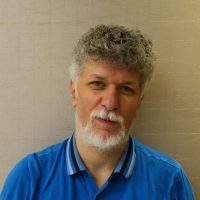
Peter Pollner
Senior Researcher, Semmelweis University Health Management Training Center
Peter Pollner is a Senior Researcher in Data and Network Sciences at the Semmelweis University in Budapest, Hungary. Before this he worked in the academic research group of Tamás Vicsek on social networks. He now works on artificial intelligence (AI) activities at the Health Services Management Training Centre at Semmelweis with Miklós Szócska.
Hanna Kranas
Postdoctoral Researcher, Josep Carreras Leukaemia Research Institute
Hania is a postdoctoral researcher at the Cancer Immunogenomics Lab led by Dr. Eduard Porta. She holds both a Bachelor and a Master in Bioinformatics and Systems Biology from the University of Warsaw, Poland. Before joining the Josep Carreras Leukaemia Research Institute, she defended her PhD on computational studies of DNA damage and repair of alkylating agents and UV light at the IRB Barcelona under the guidance of Nuria-Lopez Bigas. Currently, she works on cancer risk prediction. She will introduce the Use Case 4 of the SECURED consortium, focused on protecting the very sensitive patient’s data like electronic health records and genomic variants.
Dusko Milojevic
PhD Researcher, KU Leuven CiTiP
Dusko Milojevic is a PhD researcher at KU Leuven’s Centre for IT & IP Law (CiTiP). He works on the Horizon Europe projects CYLCOMED, SECURED, and PERUN, which focus on the intersection of AI, cybersecurity, and data protection. Dusko graduated in Law from the University of Belgrade, and he holds a Master’s in Law from the same University. Additionally, he obtained a Master’s degree in social science from the University of Manchester. His PhD explores the human factor in cybersecurity law, examining how EU governance could be recalibrated to better address human vulnerabilities in an era of increasingly sophisticated cyber threats. Dusko’s broader research interests span AI governance, privacy, and the ethical dimensions of cybersecurity technologies.
Georgios Tasopoulos
PhD Researcher, Informatics Institute of University of Amsterdam
Georgios Tasopoulos is a PhD candidate in the Complex Cyber Infrastructure group of the Informatics Institute of University of Amsterdam. In the SECURED project, he is working on the optimisation of Fully Homomorphic Encryption techniques on the architectural and software level. He has worked for 2 years in Industrial Systems Institute / ATHENA Research Center (Patras, Greece), mainly focusing on Resource-Constrained Systems Security and Post-Quantum Cryptography. He holds a degree in Electrical and Computer Engineering from the University of Patras, Greece. His research interests include privacy-preserving techniques, post-quantum cryptography and resource-constrained systems security.
Hamza Aguelal
PhD Researcher, University College Cork
A cybersecurity and privacy researcher specializing in data protection, de-anonymization, and risk assessment for health data within EU-funded research project. Based in Cork, Ireland, his work focuses on de-anonymization attacks, privacy-enhancing technologies, and secure processing of sensitive medical datasets. Hamza has experience spanning security auditing, GRC, and academic lecturing in cybersecurity. He is currently pursuing a PhD at University College Cork as a partner in SECURED-EU, where his research explores practical de-anonymization threats and mitigation strategies in healthcare data ecosystems.
Should you need any information or assistance, please contact: secured.euproject@gmail.com
